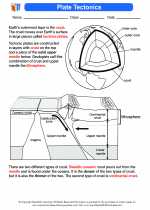Order in Science
In science, "order" refers to the arrangement or organization of elements within a system. It is a fundamental concept that helps scientists understand the structure and function of different natural phenomena. Understanding order is crucial in various scientific disciplines, including physics, chemistry, biology, and earth science.
Types of Order
There are different types of order that are studied in science:
- Numerical Order: This refers to the sequential arrangement of numbers or quantities. It is essential in measurements, calculations, and mathematical relationships within scientific experiments.
- Spatial Order: Spatial order relates to the physical arrangement of objects or components in space. It is relevant in fields such as astronomy, geology, and ecology, where the spatial distribution of entities influences natural processes.
- Temporal Order: Temporal order pertains to the sequence of events or changes over time. It is critical in fields like biology, environmental science, and physics, where understanding the timing and duration of processes is essential.
- Structural Order: This type of order deals with the arrangement of atoms, molecules, cells, or other structural units within a system. It is a central concept in chemistry, biochemistry, and molecular biology.
Studying Order in Science
To understand and analyze order in science, students can follow these study tips:
- Conceptual Understanding: Gain a clear understanding of the different types of order and their significance in scientific investigations.
- Observation and Analysis: Practice observing natural phenomena and identifying the various forms of order present in the observed systems.
- Experimental Design: Design and conduct experiments that involve the manipulation and observation of ordered systems, such as sequential processes or spatial arrangements.
- Data Interpretation: Develop skills in interpreting data related to order, including graphs, diagrams, and spatial representations.
- Interdisciplinary Connections: Explore how the concept of order is interconnected across different scientific disciplines, recognizing its universal applicability.
- Real-World Applications: Investigate real-world examples where understanding order is crucial for solving scientific problems or improving technological systems.
Importance of Understanding Order
Understanding order is vital in science for the following reasons:
- It provides a systematic framework for organizing and analyzing complex natural systems.
- It enables scientists to make predictions and draw conclusions based on the structured arrangements found in nature.
- It facilitates the development of models and theories that explain the behavior and interactions of natural phenomena.
- It supports technological advancements by guiding the design and optimization of engineered systems based on natural order principles.
[Order] Related Worksheets and Study Guides:
.◂Science Worksheets and Study Guides Eighth Grade. Plate tectonics
Study Guide Plate tectonics
Plate tectonics  Activity Lesson
Activity Lesson Plate Tectonics
Plate Tectonics  Worksheet/Answer key
Worksheet/Answer key Plate tectonics
Plate tectonics  Worksheet/Answer key
Worksheet/Answer key Plate tectonics
Plate tectonics  Worksheet/Answer key
Worksheet/Answer key Plate tectonics
Plate tectonics  Worksheet/Answer key
Worksheet/Answer key Plate tectonics
Plate tectonics  Vocabulary/Answer key
Vocabulary/Answer key Plate tectonics
Plate tectonics  Vocabulary/Answer key
Vocabulary/Answer key Plate tectonics
Plate tectonics  Vocabulary/Answer key
Vocabulary/Answer key Plate tectonics
Plate tectonics  Vocabulary/Answer key
Vocabulary/Answer key Plate tectonics
Plate tectonics  Vocabulary/Answer key
Vocabulary/Answer key Plate tectonics
Plate tectonics  Vocabulary/Answer key
Vocabulary/Answer key Plate tectonics
Plate tectonics  Vocabulary/Answer key
Vocabulary/Answer key Plate tectonics
Plate tectonics 

 Activity Lesson
Activity Lesson
 Worksheet/Answer key
Worksheet/Answer key
 Worksheet/Answer key
Worksheet/Answer key
 Worksheet/Answer key
Worksheet/Answer key
 Worksheet/Answer key
Worksheet/Answer key
 Vocabulary/Answer key
Vocabulary/Answer key
 Vocabulary/Answer key
Vocabulary/Answer key
 Vocabulary/Answer key
Vocabulary/Answer key
 Vocabulary/Answer key
Vocabulary/Answer key
 Vocabulary/Answer key
Vocabulary/Answer key
 Vocabulary/Answer key
Vocabulary/Answer key
 Vocabulary/Answer key
Vocabulary/Answer key
